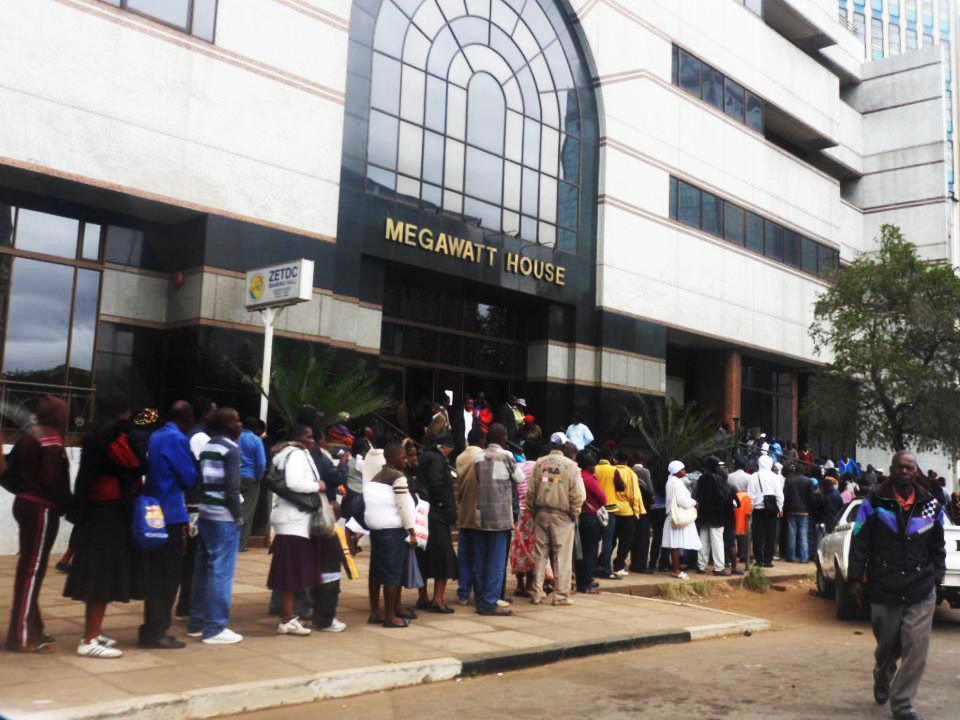
THE Zimbabwe National Chamber of Commerce (ZNCC) has partnered with the Zimbabwe Electricity Transmission and Distribution Company (ZETDC) and a local company to roll out smart meter technology expected to reduce load-shedding in the commercial sector.
Report by Ndamu Sandu
The move comes at a time generation capacity is unable to meet demand resulting in power blackouts.
A smart meter refers to an electrical gadget which records sales of electricity and allows a two-way communication line between the consumer and supplier of electricity.
The partnership has roped in Echelon, one of the world’s biggest suppliers of smart meters. Echelon is working with its local partners, Connect the World. Echelon has the biggest footprint in terms of smart meter deployment in the world.
Connect The World managing director Ben Mavedzenge said the technology typifies the use of ICTs to manage supply and demand and in the process converting a grid into an internet protocol.
“Accessibility to information is as ubiquitous as one with an internet account. Any person can access the account and see how they are consuming electricity,” he said.
The power utility recently in-stalled in households prepaid metres, replacing conventional billing system that had been posing challenges as consumers were not paying up.
- Chamisa under fire over US$120K donation
- Mavhunga puts DeMbare into Chibuku quarterfinals
- Pension funds bet on Cabora Bassa oilfields
- Councils defy govt fire tender directive
Keep Reading
“It [prepaid meters] addresses the cashflow issues for utilities. It can’t tell you the upsurge or voltage drop. Because of that, it is called a dumb meter. Smart metering involves two-way communication. It can report you back to the server if one tampers with it,” Mavedzenge said.
Owen Masaraure, ZNCC’s energy efficiency engineer and project manager told Standardbusiness that the use of the technology came after the realisation that the solution to “the current power cuts is not only from the supply side of the grid but also lies on the fact that industry and commerce was not being responsible enough to account for all that is being fed from the grid”.
Masaraure said the use of smart meters was motivated by an urgent need to manage the country’s peak demand after realising that the power shortfalls of 800MW is a result of poor load management by industry.
“About 60% of this peak demand can be curtailed, hence smart metering technology would be ideal to manage such a large peak demand to considerable margins, thus reducing the power import bill as well as cutting by almost half in new capacity generations, being touted in most public circle and requiring large volumes in cash investments,” he said.
He said smart metering technology will enable the regulatory authority to carry out national power audits on continuous basis with a view to synchronise tariffs with variations in seasonal demands or coming up with a cost based tariff regime.
How does industry benefit from smart meters?
Masaraure said companies on maximum demand can reduce by close to almost 40% on this tariff through load management programmes, since this technology is integrated to provide information for such a platform.
“Companies are imposed to part three types of tariffs, that is peak hour rate, off-peak rate and standard rate and can be in a position to reduce the much expensive peak hour rate, currently hovering above US$0,12 per unit, through load curtailment programmes, or rather peak shaving arrangements using the very smart metering technology. We are estimating that between 5%-20% savings can be achieved on peak demand charge to those exposed to such a tariff,” he said.
Efficient use of electricity means that the country would save on imports. On average the power utility generates 1194MW and imports 55MW.
Masaraure said company executives or engineers will be enabled to manage their energy usage outside their business premises, as well as accessing their cost of electricity after usage at any time without prejudice from the power utility.
“There is also reduction in load shedding through improved load management programmes resulting in savings there by feeding back into the grid,” he said.
The technology is also envisaged to improve energy audits to the corporate world, thereby empowering management to formulate energy policies that enable them to invest monies into energy upgrades.











